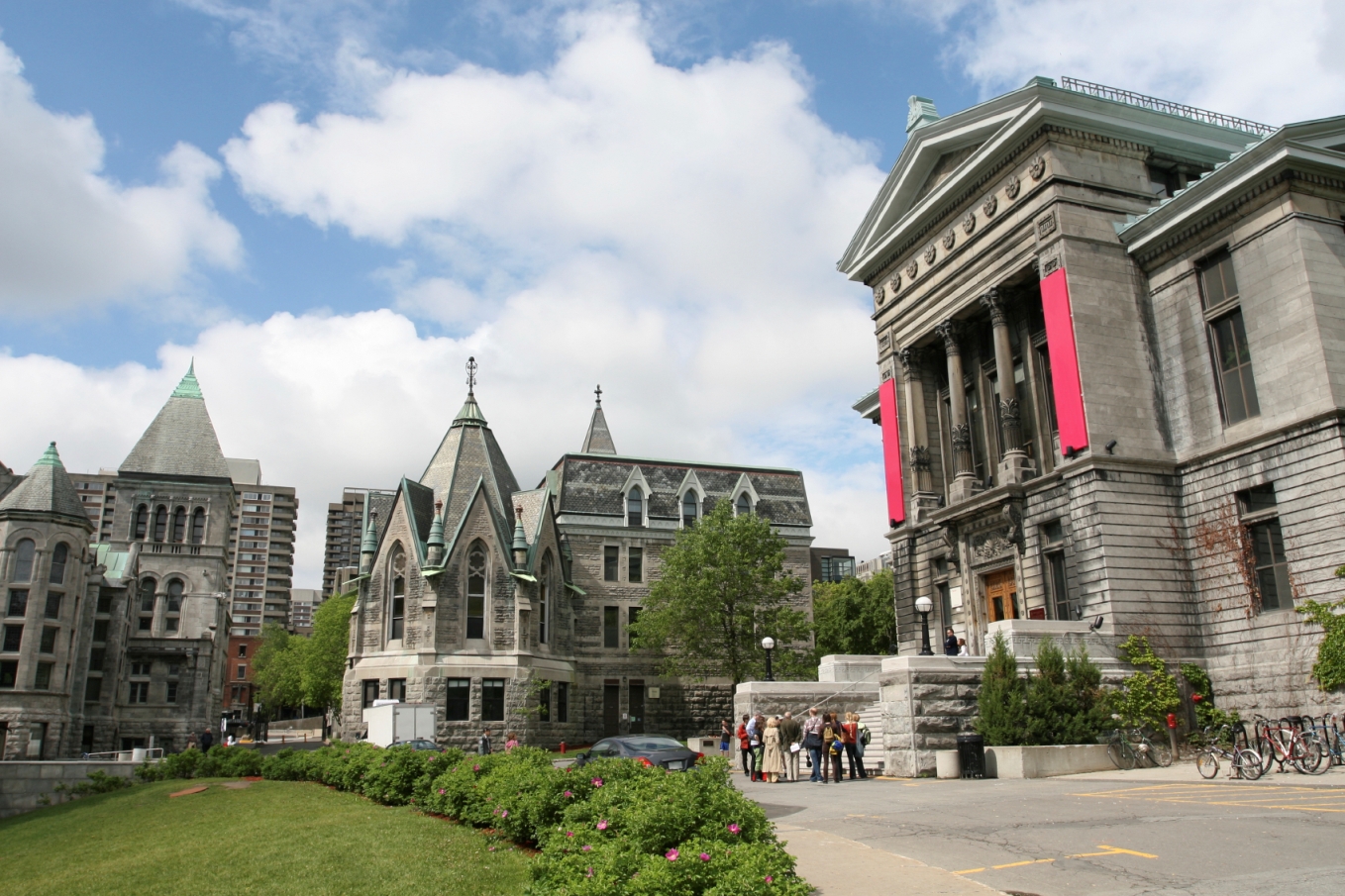A McGill University administration investigation cites the “polarizing” debate around the Israeli-Palestinian conflict, in particular the boycott, divestment and sanctions (BDS) campaign, as causing both Jewish and Muslim students to feel they are targets of discrimination.
In its final report released June 30, the Initiative Against Islamophobia and Antisemitism (IAIAS) states: “Unquestionably, the most fraught question that emerged within the focused consultations was whether expressions in support of BDS amounted to discrimination.
“For many members of the Jewish community, some BDS-related activism – while permissible political expression at the outset—descended into anti-Zionist rhetoric and claims that, for them, were tantamount to antisemitism.”
On the other hand, pro-Palestinian Muslim students felt they were victimized for their views.
The initiative was launched in March by Provost and Vice-Principal (Academic) Christopher Manfredi “in response to a growing number of reports from students and staff of Muslim and Jewish identity of experiences that have led them to feel marginalized, alienated, and/or discriminated within our university context.”
IAIAS report co-authors Angela Campbell, associate provost (equality and academic policy) and Fabrice Labeau, deputy provost (student life and learning) drew on the findings of focus groups with students, faculty and staff conducted by an independent facilitator and through an open call for submissions, as well as input from external groups, including Hillel Montreal and the National Council of Canadian Muslims.
“It is important to underscore what should be an obvious truth and was expressed by many participants: neither the Jewish nor the Muslim communities are monoliths. Additionally, Israeli and Palestinian advocacy does not neatly map on to Jewish and Muslim identity, respectively,” the report states.
They found “unequivocal support” among all participants that every member of the McGill community be “free to critique the policies of any nation” and that the university “must remain true to its commitment to allow political expression even when it singles out and critiques one nation-state. For these stakeholders, denouncing Israel’s policies is not antisemitic and should be understood and treated as permissible speech.”
The administration says that it is coincidental that the IAIAS was struck after the Students’ Society of McGill University (SSMU) adopted a pro-BDS Palestine Solidarity Policy motion. In March the motion was put to a referendum and undergraduates, which the SSMU represents, voted in favour of it by a strong majority, although the turnout was very low.
The administration issued an ultimatum to withdraw the resolution or McGill would terminate its memorandum of agreement with the SSMU choking off funding, because the policy was contrary to the principle of equity.
The SSMU board of directors pulled the resolution in April, to the outrage of Solidarity for Palestinian Human Rights (SPHR) McGill, the club that submitted the policy.
The administration says the IAIAS was created to address antisemitism and Islamophobia going back several years that have become more pronounced of late.
Among the reasons are “BDS activism and contentious campus debate” around the Middle East conflict; increased online “harassment, vitriolic social media posting and doxing”; and Bill 21, the Quebec secularism law.
According to McGill data, 11 per cent of students identify as Muslim and 7.8 per cent as Jewish.
“Muslim and Jewish community members alike feel that there is widespread misunderstanding of their cultures, histories, experiences, and identities—as well as what constitutes discriminatory behaviour against them—throughout the McGill community,” the report states.
Some participants described “repeated micro-aggressions inflicted by peers, colleagues, supervisors and teaching staff,” or feeling “unsafe in their identities” on campus, especially visible Muslims or Jews.
Several students spoke of professors assigning texts, making remarks, or taking public positions that they believed were anti-Jewish or anti-Muslim.
Both religious groups wanted “a respectful and inclusive space” to raise concerns with the administration about antisemitism and Islamophobia.
To that end, the IAIAS recommends appointing one Muslim and one Jewish student liaison within the McGill Office of Religious and Spiritual Life and starting regular meetings between Muslim and Jewish student associations and the administration.
The report also speaks of the need for a peer mentoring program in collaboration with the Muslim Students’ Association and Hillel McGill.
It also recommends funding for Muslim Awareness Week and public lectures and scholarly symposia by the Department of Jewish Studies and the Institute of Islamic Studies; annually observing International Holocaust Remembrance Day and the deadly 2017 shooting at the Quebec City mosque; more interfaith activities, and inclusion training for faculty and staff.
“Fair and consistent accommodation” of Jewish and Muslim holidays and better access to kosher and halal food is also recommended.
The university says it will “act on each of these recommendations immediately to enhance inclusion and belonging for Muslim and Jewish members of our university community.”
Jewish advocacy groups were pleased that the university had listened to student concerns and was beginning to address antisemitism on campus.
“We thank McGill University administration for the process they engaged in, listening to students, hearing our suggestions, and proposing steps to address the situation on campus,” Hillel Montreal said in a statement. “We hope this is the start to a better campus life for all McGill students.”
On preliminary reading, the Centre for Israel and Jewish Affairs (CIJA) reacted positively to the report.
“The IAIAS consultations undertaken by the McGill administration mark one more step in McGill’s commitment to addressing the very real problems facing our students on campus,” CIJA Quebec vice-president Eta Yudin said in a statement.
Federation CJA chief executive Yair Szlak said, “Jewish students at McGill have shared their concerns with Federation CJA about issues such as the exclusion and targeting of Jewish students by certain campus societies, abuse of podium where professors would use their position of authority in order to push their personal opinions, and the antisemitic BDS movement’s presence on campus.
“We’re glad to see McGill is serious about tackling antisemitism and hate, and ensuring that all students can feel safe on campus.”
